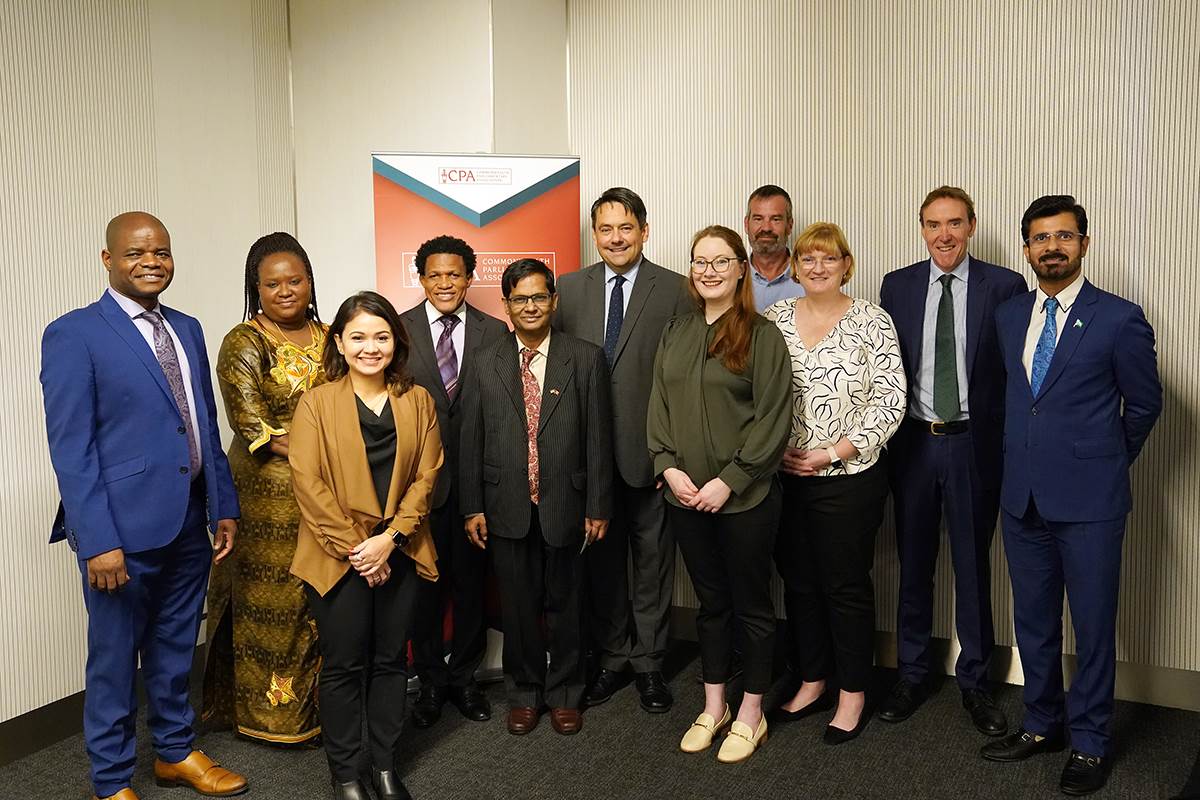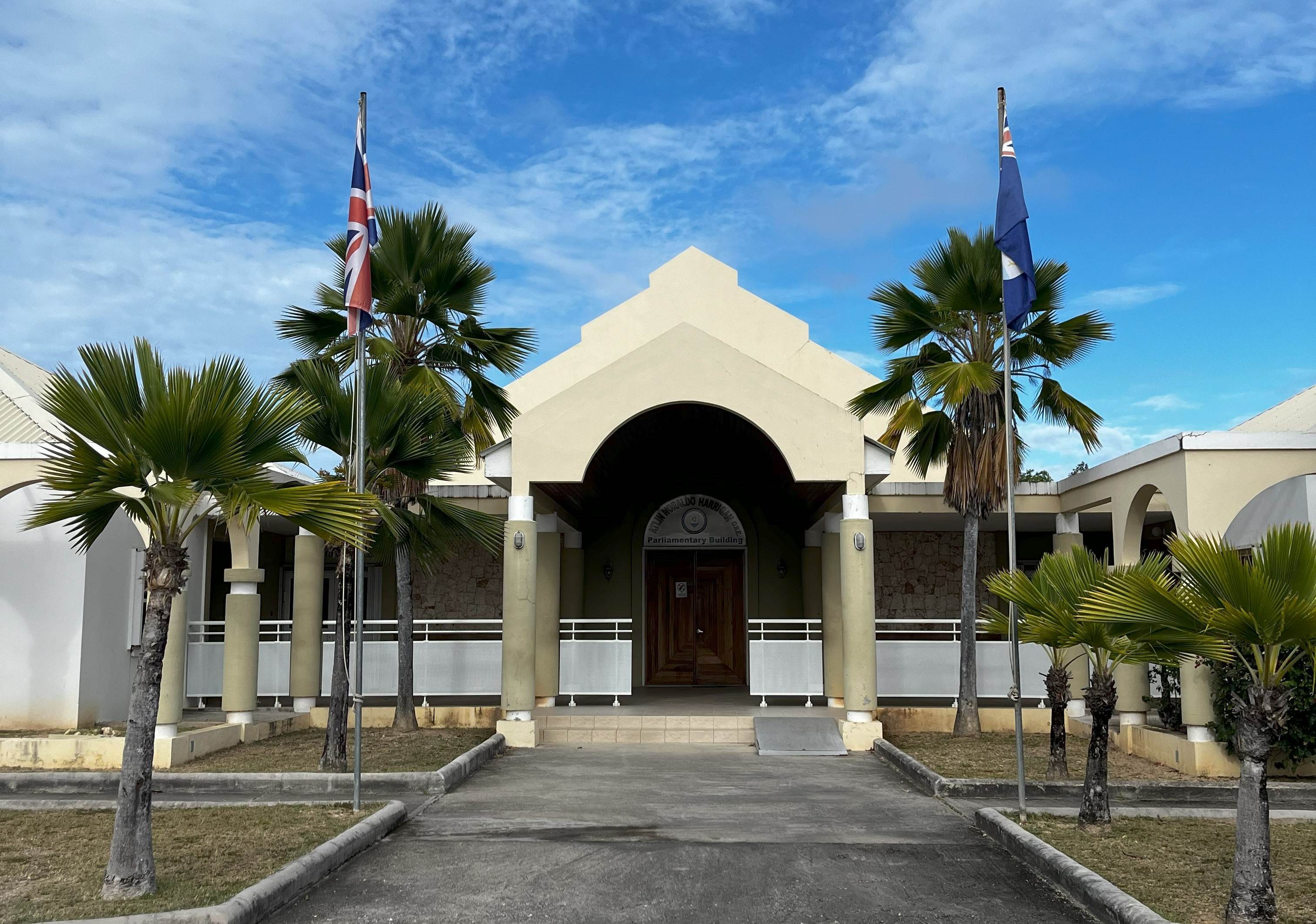
Parliaments and democracy in an evolving Commonwealth: Reflecting on the 75th anniversary of the ‘modern’ Commonwealth
Stephen Twigg is the 8th Secretary-General of the Commonwealth Parliamentary Association (CPA). He is a former UK Parliamentarian, elected from 1997 to 2005 and from 2010 to 2019, and, during his parliamentary career, held several senior positions, including Minister for Schools and Chairperson of the International Development Select Committee. He was instrumental in setting up the International Parliamentary Network for Education and is the Chair of the Council for Education in the Commonwealth (CEC).
Article posted on 22/04/2024

For more than a century, the Commonwealth Parliamentary Association (CPA) has been a forum for Parliamentarians and parliamentary staff to articulate and discuss developments on parliamentary procedures and practices, democracy, good governance and human rights.
These are a fundamental part of the Commonwealth’s values, as agreed by Commonwealth Heads of Government and codified in the 2012 Commonwealth Charter and other Commonwealth Declarations such as the Harare Declaration of 1991 and the Singapore Declaration of 1971. The Commonwealth Charter demonstrates resolve and collective commitment to promote and uphold these principles and values, ensuring that they are nurtured and implemented to the highest standards. The CPA continues to play an important role in this regard.
Over the years, the CPA has continued to be a medium for sharing best practices and principles on these fundamental values, which are important for the good governance and human development for the benefit of all Commonwealth citizens. The CPA traces its origin to a world vastly different from today and pre-dates the ‘modern’ Commonwealth by 38 years.
The CPA emerged from the Empire Parliamentary Association at a conference in London in October 1948, as Parliamentarians preceded their governments by several months in recognising the future lay in working together as equals co-operating to build a new world. The ‘modern’ Commonwealth was later founded officially at government level in 1949 by the London Declaration.
The CPA has a membership of almost 180 Commonwealth Parliaments and Legislatures, big and small, across all regions of the Commonwealth. The CPA’s unique position in representing national, state, provincial and territorial Legislatures means that our membership includes more than 125 sub-national states, provinces and territories in federal-style countries, fourteen Overseas Territories and three Crown Dependencies, all with their own Parliaments or Legislatures.

The CPA became, and continues to be, an important association for Members of Parliament and parliamentary staff in the Commonwealth to learn good practice from each other.
The breadth of the CPA’s membership reminds us of the long record of cooperation and collegiality among the Parliaments and Legislatures of the Commonwealth. Bilateral exchanges and international meetings of those elected or appointed to represent our citizens, and of officials who serve Parliaments and Legislative Assemblies, provide valuable demonstrations of our shared values and principles.
The CPA acknowledges that democracy is a continuously developing concept that needs to be nurtured, and that no single Parliament can do it all in terms of providing a source of best practice. All Parliaments, regardless of how big or small, young or old, are potential sources of shared best practice. The CPA is therefore a key forum for promoting parliamentary development and experience where Members learn and share from each other.
The CPA’s many programmes and its parliamentary journal, The Parliamentarian first published in 1920, are vital not only for sharing information amongst Parliamentarians and other stakeholders, but are also instrumental in enabling the CPA to fulfil its statement of purpose to ‘connect, develop, promote and support Parliamentarians and their staff to identify benchmarks of good governance and the implementation of the enduring values of the Commonwealth’. Members exchange views and deepen their understanding of contemporary democratic and development issues, as well as their roles and responsibilities as the peoples’ representatives.
One of the CPA’s roles is to provide a diverse range of activities and initiatives to enable our Members to learn from and communicate with each other. This is one of the important functions of our three CPA networks – the CPA Small Branches (comprised of Legislatures with up to a million people in their jurisdictions), the Commonwealth Women Parliamentarians (CWP) and the Commonwealth Parliamentarians with Disabilities (CPwD). These networks serve to connect Parliamentarians so that they can learn from each other, as well as providing platforms for their voices and common interests to be heard throughout the Commonwealth.
Increased women’s representation is an important priority for the CPA as we encourage inclusive, diverse and gender sensitive Legislatures. Our Disabilities network has placed disability inclusion firmly on the CPA’s agenda and the CPA Small Branches network has ensured that the voices of Small Island Developing States are heard on key challenges like climate change and disaster risk management.
The CPA has been instrumental in developing a series of standards for jurisdictions to measure themselves against and develop the effectiveness of their parliamentary institutions. These include the CPA Recommended Benchmarks for Democratic Legislatures and the CPA Recommended Codes of Conduct for Members of Parliament. The CPA was also a founding partner, alongside a number of Commonwealth partners, of the Commonwealth Latimer House Principles on the Three Branches of Government which articulates the principles of the separation of powers between the Legislature, the Executive and the Judiciary.
Highlights of the CPA’s recent programmatic activities include assisting Commonwealth Parliaments to conduct self-assessments using the CPA’s Recommended Benchmarks for Democratic Legislatures. Commonwealth Parliaments and Heads of Government have acknowledged the importance of the CPA Benchmarks and the benefits of undertaking self-assessments using these recommended markers. Parliaments note that the exercise not only promotes good governance and management of Parliaments but also increases Legislatures’ self-awareness of institutional gaps and challenges that need further attention.
The CPA Recommended Benchmarks for Democratic Legislatures reinforce the belief that effective Parliaments are one of the principal institutions of any functioning democracy. They provide a minimum standard and a guide on how a Parliament should be constituted and how it should function in line with the values and principles of the Commonwealth Charter on the development of free and democratic societies. The CPA Benchmarks also align with the UN Sustainable Development Goals (SDGs), in particular SDG16 on strong and sustainable democratic institutions.
The continuous professional development of Parliamentarians and parliamentary staff remains a key priority of the CPA and we therefore continue to develop innovative and relevant programmes for our Members of Parliament and parliamentary staff. A recent example being the CPA Parliamentary Academy, an online learning hub for CPA Members and those outside of the core membership who wish to learn about Parliaments, procedure and key thematic topics, including climate change, accessibility and women’s caucuses. Our programmes facilitate the expansion of knowledge, enhancement of procedures and practice, and improvements in accountability and transparency so that our democratic institutions answer to the needs and expectations of their electorates. These activities align closely with the Commonwealth priorities for continually raising levels of performance and responsiveness.
Parliamentarians have a vital role in enabling democracy to filter down to a local level among those they represent, as they also hold to account Ministers and officials at the highest levels of government. The most senior interaction between Parliamentarians in the Commonwealth is at the biennial Commonwealth Heads of Government Meetings (CHOGM), which is also attended by Commonwealth Leaders. At successive CHOGMs, Heads of Government have sought to focus on the Commonwealth’s ambition for its people and to maintain its global relevance through the contributions of Governments and Parliaments alongside other intergovernmental and associated organisations, networks of civil society organisations, businesses and other partners.
Under the CHOGM 2024 theme of ‘One Resilient Common Future: Transforming our Common Wealth’, Commonwealth Leaders will consider a wide range of issues including trade and investment; inclusive growth; creating higher levels of employment, particularly for young people; climate change and the environment, including the Commonwealth Blue Charter; providing affordable healthcare and quality education; protecting marginalised and under-represented citizens, including gender equality. There are a huge number of issues that the Commonwealth can work together on and this demonstrates the important role that Commonwealth Parliaments and Parliamentarians can play in driving forward progress, and in setting ambitious goals for attainment nationally, regionally and for the Commonwealth collectively.
Looking to the future, the Commonwealth will need to take account of the ever-evolving circumstances we find ourselves in. This includes the legacies of colonialism and slavery as well as other challenges such as economic/trade changes, the impact of global pandemics, and the many peace and security issues, along with the prospect of creating greater economic opportunities for human development and social inclusion. These will all have significant implications in defining the aspirations of the people of the Commonwealth and it is our role to remain a relevant and effective organisation that supports Parliamentarians and parliamentary staff in responding to these challenges.
For further information about the Commonwealth Parliamentary Association please visit www.cpahq.org or email hq.sec@cpahq.org.
Return to the CPA blog series: '75th anniversary of the ‘modern’ Commonwealth'
Follow the CPA on social media to continue the discussion.



